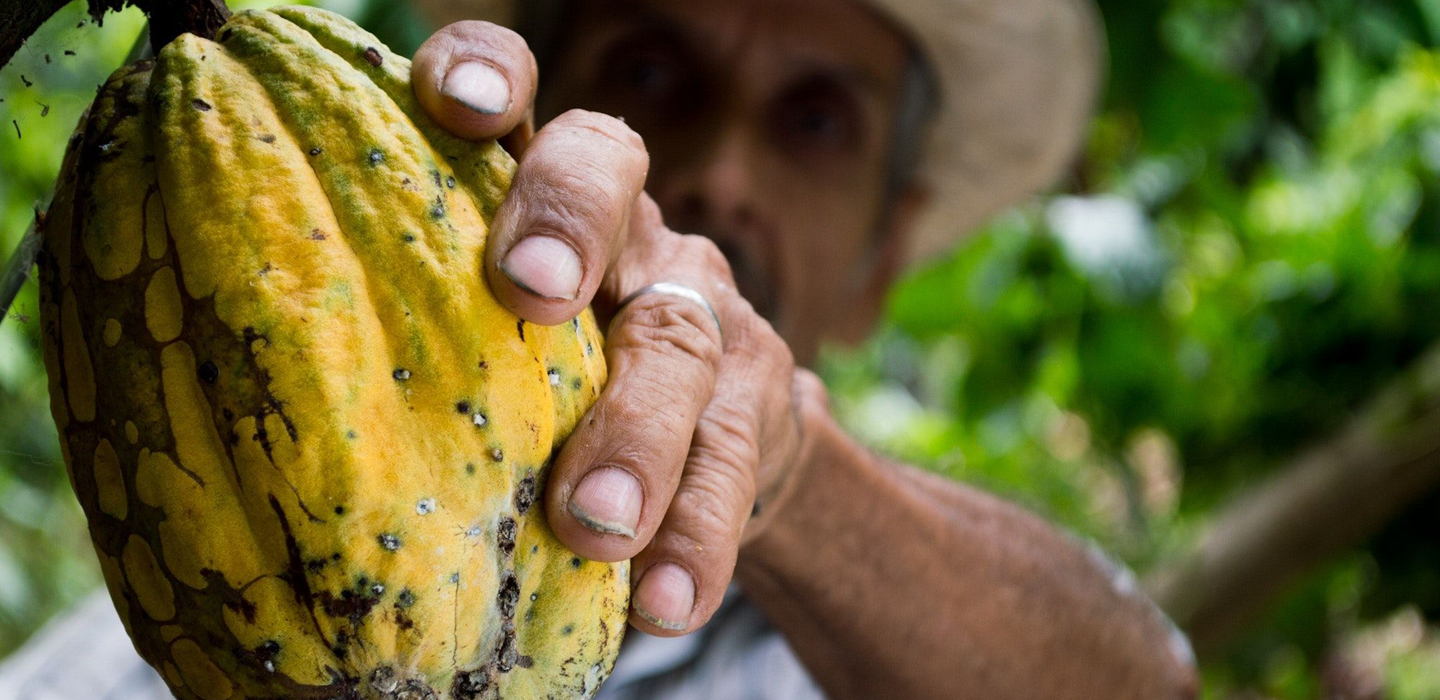The illusion of choice
IFAD Asset Request Portlet
Asset Publisher
The illusion of choice
Oxfam’s Behind the Brands Campaign helped companies raise the bar. Will they deliver?
Estimated reading time: 3 minutes
Consumers increasingly want to know whether the food and beverage brands they buy from are doing social and environmental good, including doing right by the smallholder farmers in global food supply chains. Oxfam launched its international ‘Behind the Brands (BtB)’ campaign in February 2013 to change the way that the ten largest global food and beverage companies do business. Now, Oxfam, with the support of IFAD, is focused on how those companies are implementing their new sustainability commitments.
BtB companies are hugely influential actors in our global food system. Their policies affect how agriculture commodities are produced, whether they are free of exploitation and deforestation and benefit small-scale food producers, or instead contribute to growing inequality and human suffering. Foundational to the BtB campaign was a company scorecard. Oxfam ranked the ten companies on the strength of their policies on transparency, women, agricultural workers, small scale farmers, land, water, and climate.
As a result of the campaign, some companies made notable commitments. For instance, Mars, Mondelez and Nestlé committed to empowering women farmers in cocoa supply chains. Nestlé published a robust gender impact assessment in Cote d’Ivoire with a time-bound action plan to implement the assessment recommendations. Mars, historically behind when it came to addressing impacts on women cocoa farmers, is now working with cocoa communities they source from to implement a proactive women’s rights agenda. The Coca-Cola Company was the first to commit to a Zero Tolerance for Land Grabs policy; followed by PepsiCo, Nestlé, Unilever, and Associated British Foods’ subsidiary Illovo Sugar Africa. General Mills and Kelloggs committed to science-based climate emissions reductions, including in agricultural supply chains, and to advancing adaptation and resiliency among farmers in supply chains. Kellogg and General Mills promised to lead the industry by committing to setting science-based targets to reduce greenhouse gas emissions, including supply chain emissions from agriculture- a commitment directly spurred by over 238,000 actions on the part of the Behind the Brands network.
The challenge now is to implement these commitments in order to benefit the farmers, workers and communities.
Oxfam decided to develop a Behind the Brands implementation initiative, a shift from campaigning to a collaborative approach to implement policies and commitments. IFAD supports Oxfam’s efforts through the establishment of a partnership with the objective to encourage more inclusive, fair and sustainable agricultural sourcing by major agri-food companies.
Oxfam’s BtB Implementation Initiative has a three-year strategic plan consistent with IFAD’s own priorities to work for more inclusive and fair supply chains for small rural producers. This includes engaging the companies on implementation plans and roadmaps, extending commitments to agricultural commodity traders, creating implementation models in focus countries, and working with the companies to improve the global agri-food governance system.
The direct target group of the implementation phase will be 500,000 - 1,000,000 small-holder farmers. The target group will be reached by engaging the ‘Big 10’ companies on the development and implementation of their commitments. An additional focus will be on a select set of the companies’ largest suppliers, the global commodity traders. Taken together, these companies have the power to set the agenda in agri-food; the combined purchasing power of this target group gives the potential for transformational change.
Oxfam has developed a comprehensive framework to monitor the implementation of commitments. A baseline monitoring study undertaken with Notre Dame University demonstrated that the approach is having a ripple effect, with companies making new commitments in three major campaign areas, most notably around climate. Companies are beginning to implement road maps, for example in conducting impact assessments. However, implementation is uneven in key source countries, and policy and implementation improvements around women and smallholders are lagging behind. Oxfam’s assessment of selected agri-commodity traders, which will be published in the coming months, shows that there is a significant gap between the policies of the BtB companies and these important suppliers, making it impossible to implement commitments if these suppliers do not follow suit.
Oxfam recognizes that companies can’t implement their commitments on their own. It has also started to collaborate in order to address challenges in implementation. An example is Mars’ establishment of a Farmer’s Income Lab and concurrent commitment of investing US$1B over the next three years through its ‘Sustainable in a Generation’ Plan. Another great example is Nestlé and Mondelez joined Systems Innovation for Women’s Economic Empowerment (SIWEE) in Ghana, bringing together farmer associations in cocoa, shea, sorghum with buyers, traders, investors, and government bodies.
In the beginning of 2021, Oxfam will publically assess the progress of the BtB companies in implementing these commitments while putting forward a broader vision on going from commitments to impact at scale. With the SDG’s deadline of 2030, we aim to drive transformational change in BtB and learn from the hurdles and opportunities in implementing corporate commitments in order to catalyze results in the future. We believe that engaging companies around core business practices in how they source food is one of the most important steps to take in empowering small-scale farmers. Stay tuned.
Publication date: 13 March 2019